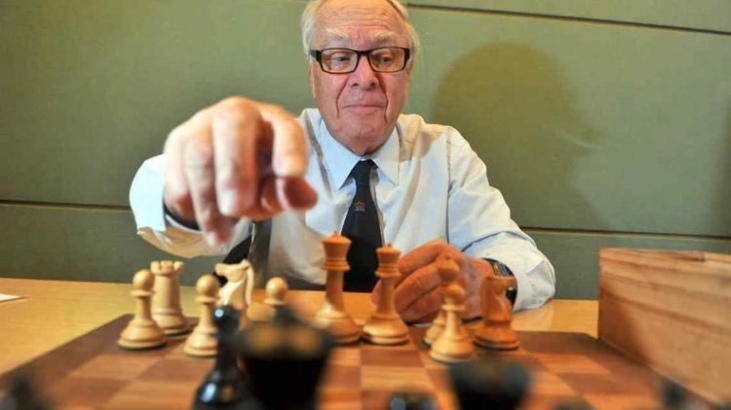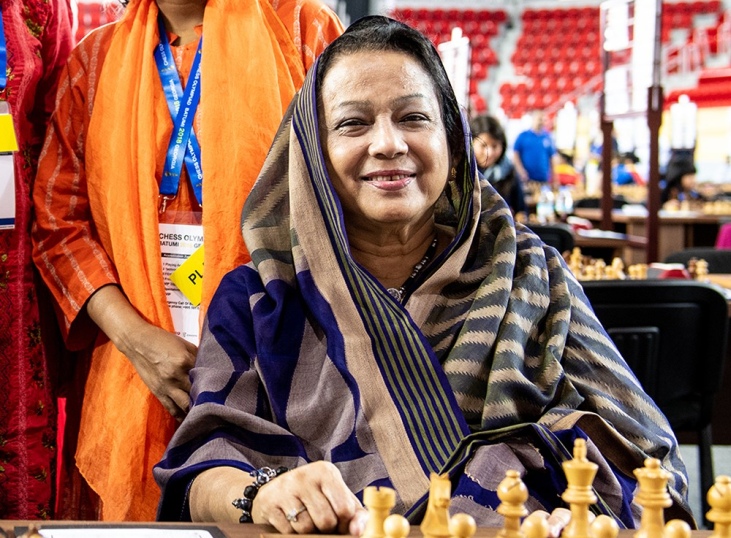What follows is an improved version of an article originally published on the FIDE newsletter #7 (June 8, 2020). If you want to receive this biweekly publication directly in your inbox, please subscribe here.
############
Today, Ramon Mateo (pictured above), the only GM from the Dominican Republic, celebrates his 62nd birthday. A few weeks ago, a spontaneous debate sparked on social media when Ramon posted on his Facebook account that he won the National Championship in 1979, and then again in 2010. With a total of eight national titles under his belt, there is an impressive 31-year gap between his first and last victory. “Is this a world record of some kind?”, he wondered.
While very praiseworthy, Ramon’s achievement is not a record. To begin with, the World Champion Max Euwe also dominated the chess scene in his country for more than three decades: he won every Dutch championship that he contested from 1921 until 1952, and additionally clinched the title again in 1955. That’s twelve victories in total, over a span of 34 years.
Bernardo Roselli improves Euwe’s record by one year, having won the Uruguayan championship 19 times in 35 years. His first victory was in 1984, and the last one, in 2019. So, having won the last edition and being still the fourth highest rated player in the country, Bernardo has very good chances of keeping accumulating titles.
In 2013, Roddy McKay won the 120th edition of the Scottish Championship when he was 62 years old, 39 years after first winning his first title (shared with Eric Holt) in 1974. What makes this result very remarkable is the fact that his previous victory had been 25 years before, in 1988, so Roddy’s victory can be seen as a huge comeback, in a country that is home to several Grandmasters.
Oscar Panno won the 2nd World Junior Chess Championship in 1953, ahead of such future strong Grandmasters as Borislav Ivkov, Bent Larsen, and Fridrik Olafsson. That same year, he achieved his first victory at the Argentinian Championship. He would only manage to win this competition two more times: in 1985, and in 1992. Between his first and last (for now!) victories, there is a 39-year gap.
 Oscar Panno
Oscar Panno
However, to find the current holder of the world record for the longest time span between a first and latest title in the national championship of a certain country, we have to go to Oceania. Last January, the International Master Paul Anthony Garbett (Auckland, 1952) shared first place in the New Zealand Open Championship, held in Tauranga. Paul’s 7th title (out of 27 participations) comes a whopping 46 years after his first victory in 1973/74. For 19 years, between 1996 and 2015, victory scaped him, but now he seems to be experiencing a second youth, achieving two more titles when he is already in his sixties. Paul might even be able to catch Anthony F Ker and Ortvin Sarapu, who won the NZ Championship a total of 14 and 20 times respectively.
 Rani Hamid
Rani Hamid
Among the ladies, Rani Hamid of Bangladesh seems to be the record holder. She won her 19th National Women’s Chess Championship in 2018, thus qualifying for the Batumi Chess Olympiad at 74 years old. She had won the title for the first time 39 years before, in 1979, barely one year after learning how to play at age 34. Rani seems to have instilled some of this competitive spirit on her offspring: one of her sons, Sohel Hamid, was a national squash champion, and the other, Kaiser Hamid, was a professional football player and the captain of the Bangladesh Football Team during the 1980s and 1990s.
Whenever we talk about competitive longevity in chess, it is almost impossible not to mention Viktor Korchnoi. The fact that Viktor changed countries at the peak of his career explains that he is not listed above, among those whose victories in a certain national championship spanned over three or four decades. However, Korchnoi could boast a record of his own: between his first victory at the USSR Championship in 1960, and his last victory at the Swiss Championship in 2011, there is more than half a century. Different countries, different eras, but the same winner.







